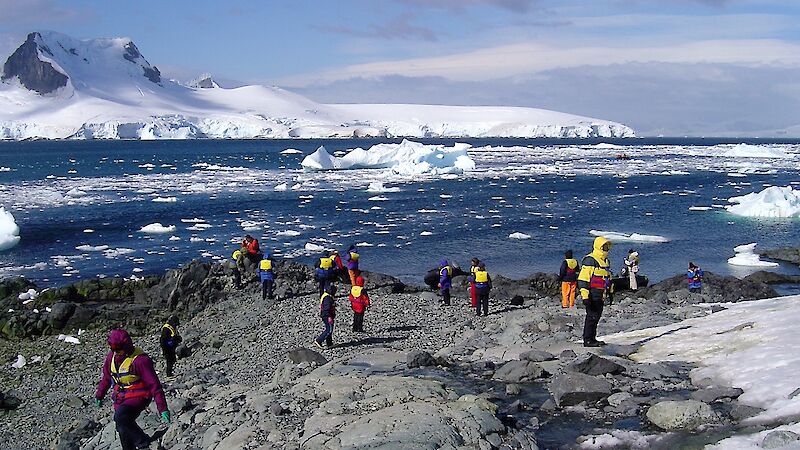Scientists are concerned that the face of Antarctica is rapidly changing as environmental threats increase - primarily from climate change, biological invasions, pollution and the increasing footprint of human activity.

In response, the international Scientific Committee on Antarctic Research (SCAR) has established a new four-year research program to better understand and address these threats and associated impacts.
Known as Ant-ICON (Integrated Science to Inform Antarctic and Southern Ocean Conservation), the research program aims to improve the protection of Antarctic and Southern Ocean ecosystems, species, and environments based on the best available science.
Ant-ICON is led jointly by Dr Aleks Terauds, Program Leader of the Marine Conservation and Management Program at the Australian Antarctic Division, and Dr Mercedes Santos, national director of Marine Protected Areas of the Administration of National Parks, Argentina.
"Ant-ICON will inform and support international efforts under the Antarctic Treaty system to protect and conserve the Antarctic region," Dr Terauds said.
International collaboration
The Program Planning Group of Ant-ICON included 47 members from 19 countries, representing the biological sciences, physical sciences, earth sciences, humanities, social sciences and a range of other Antarctic stakeholders - including policy makers and environmental managers.
Some of Ant-ICON's key research and synthesis questions will include:
- What are the key drivers of change - can tipping points, resilience, thresholds and irreversibility be identified?
- What are the roles of Antarctic species, ecosystems and environments in mitigating global change, and how might that change under future projections?
- What is the current and projected future extent of human activities (including science, science support, tourism, bioprospecting, and fisheries)?
- What are the characteristics and implications of responsible and ethical governance for Antarctica in the 21st Century?
- What are the most effective mechanisms for developing science literacy amongst policymakers and the general public?
- How can science be targeted and communicated to increase uptake by decision makers?
"Ant-ICON is innovative as it is the first SCAR Research Programme to integrate socio-ecological research and take such a transdisciplinary approach to informing environmental policy-making," said Dr Terauds.
In addition, the scientific approach taken by Ant-ICON will involve a range of other stakeholders, including National Antarctic Programs, environmental non-governmental organisations (for example, the Antarctic and Southern Ocean Coalition) and the International Association of Antarctica Tour Operators (IAATO).
Australia's joint leadership of this program, through Dr Terauds, contributes directly to Australia's commitments to be a leader in Antarctic science and environmental stewardship, as articulated in the Australian Antarctic Strategy and 20 Year Action Plan).






